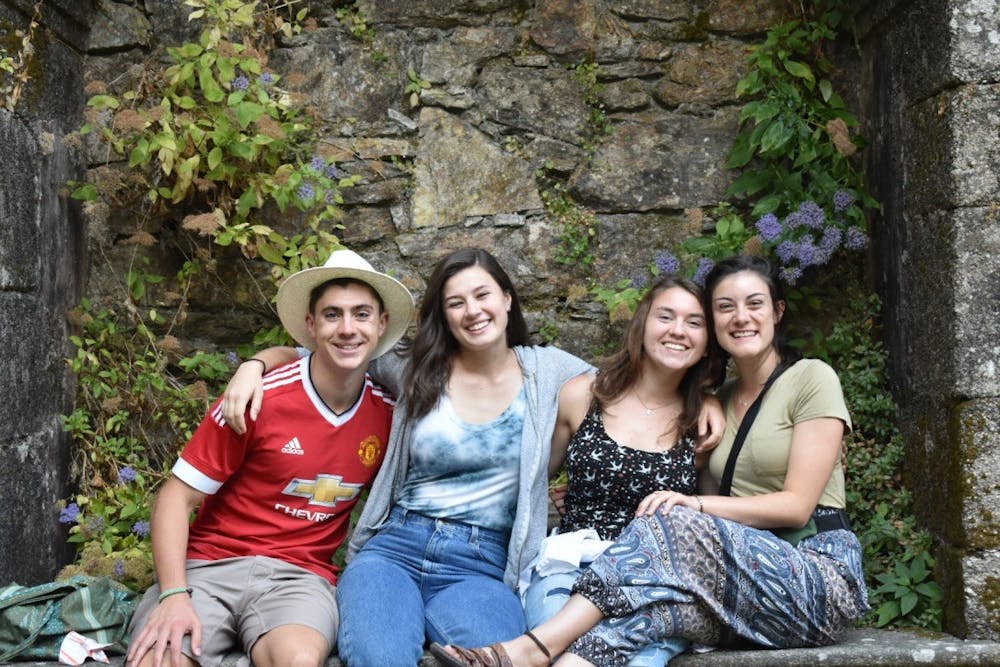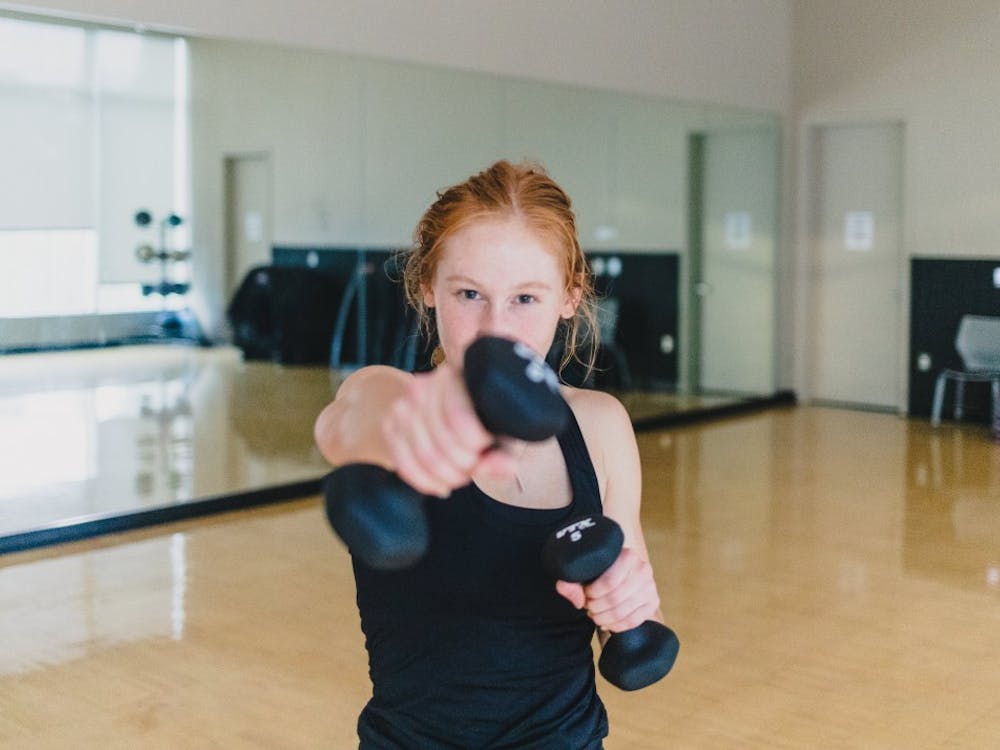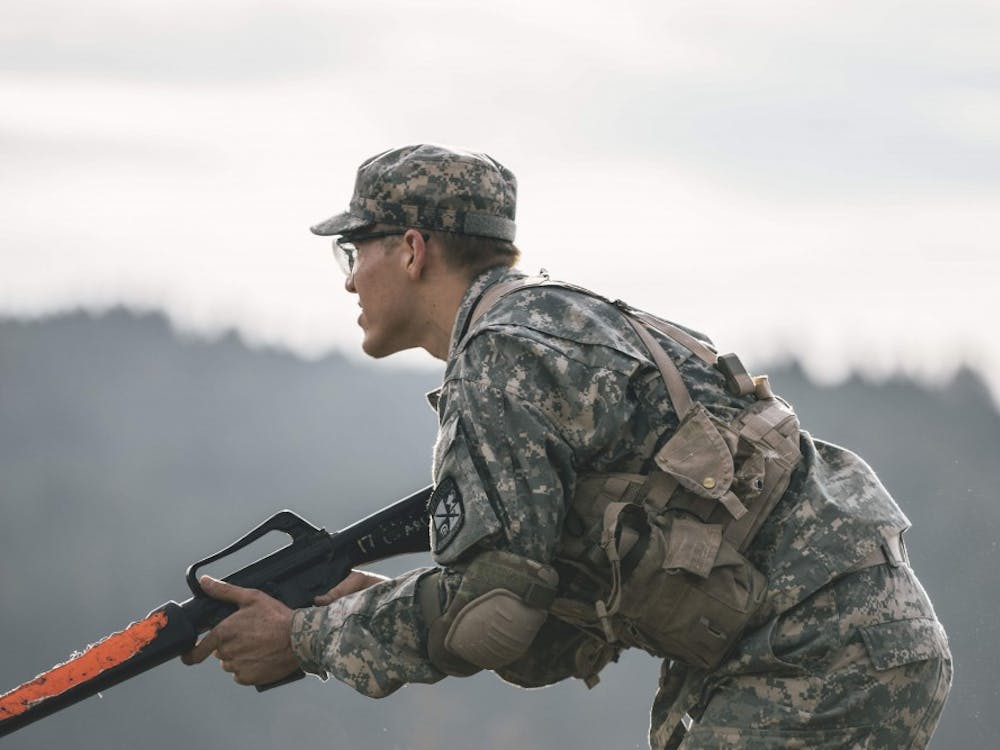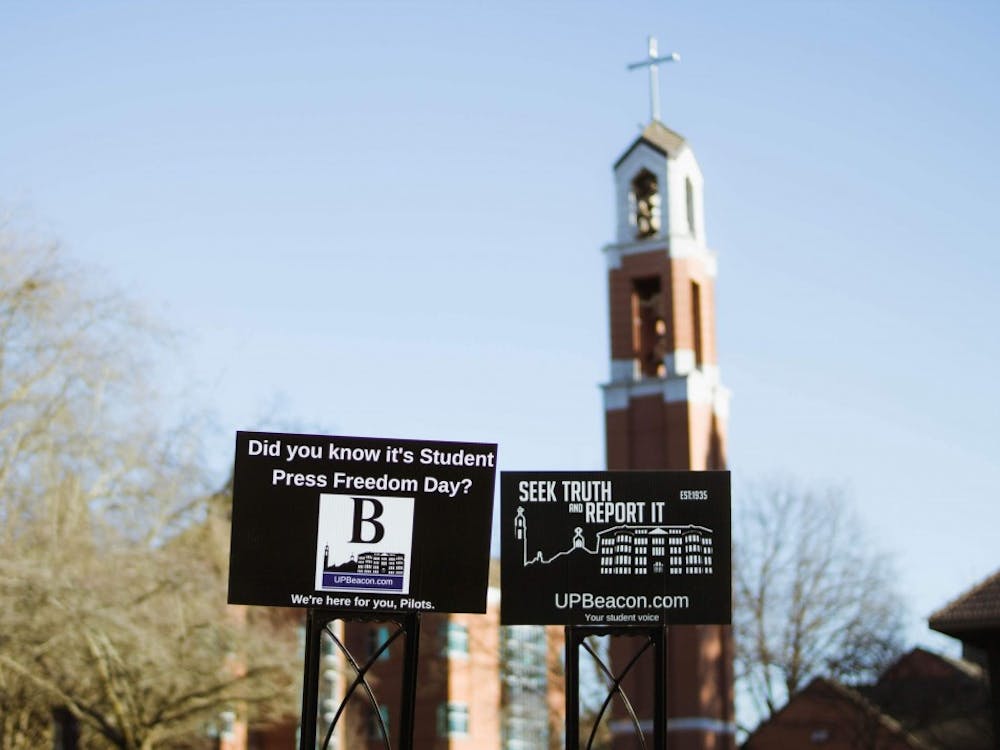Studying abroad is often advertised as a life-changing experience that you will regret not doing during college. However, for many University of Portland students, the study abroad experience is usually a mix of highs and lows.
With study abroad applications closing on Nov. 15, The Beacon talked with four students about the positive and negative experiences they had while studying abroad. UP offers 11 semester and summer programs and one year-long program for a total of 23 programs in cities like Galway, London, Granada, Quito and Tokyo to name a few.
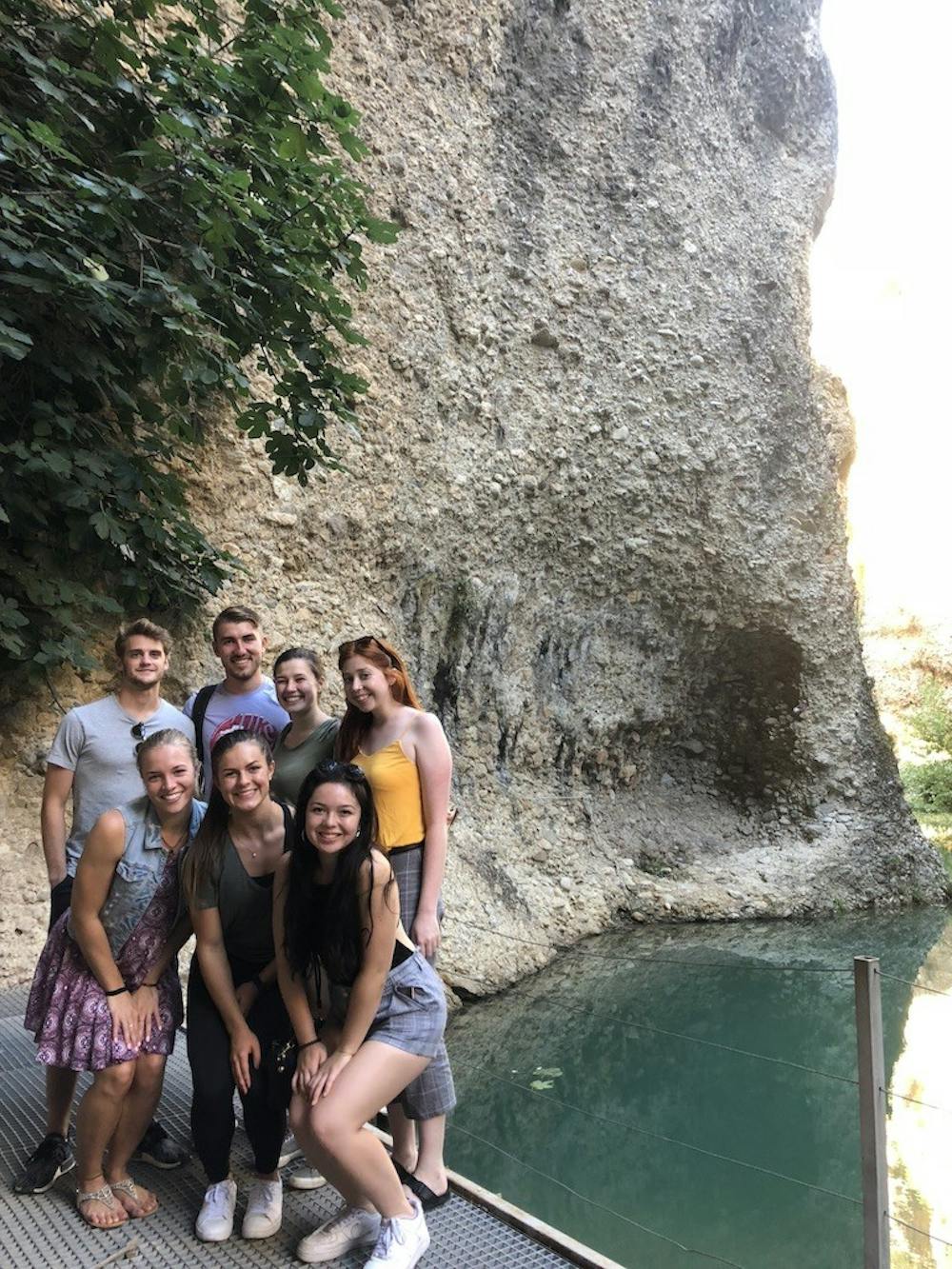
Students in Spain pose by the water for a picture. Photo courtesy of Rebecca Cole.
For junior Travis Bigelow, one of his favorite parts about studying abroad was the difference in perspective he gained after spending four months in Granada, Spain. Bigelow said that studying abroad was a life-changing experience.
“If you have been living in the states for your entire life, it gives you that world perspective on a new culture and puts your own culture and what you know in perspective, as well,” Bigelow said. “I know I can look back on it and say ‘I’m glad I did that’ and I wouldn't change that I did.”
While some students like Bigelow have an easier transition living in a foreign country, other students struggle to maintain their identity while also trying to fit into the culture.
For junior Rebecca Cole, one of the most difficult parts about her study abroad experience in Granada was that she felt like she lost part of her personality.
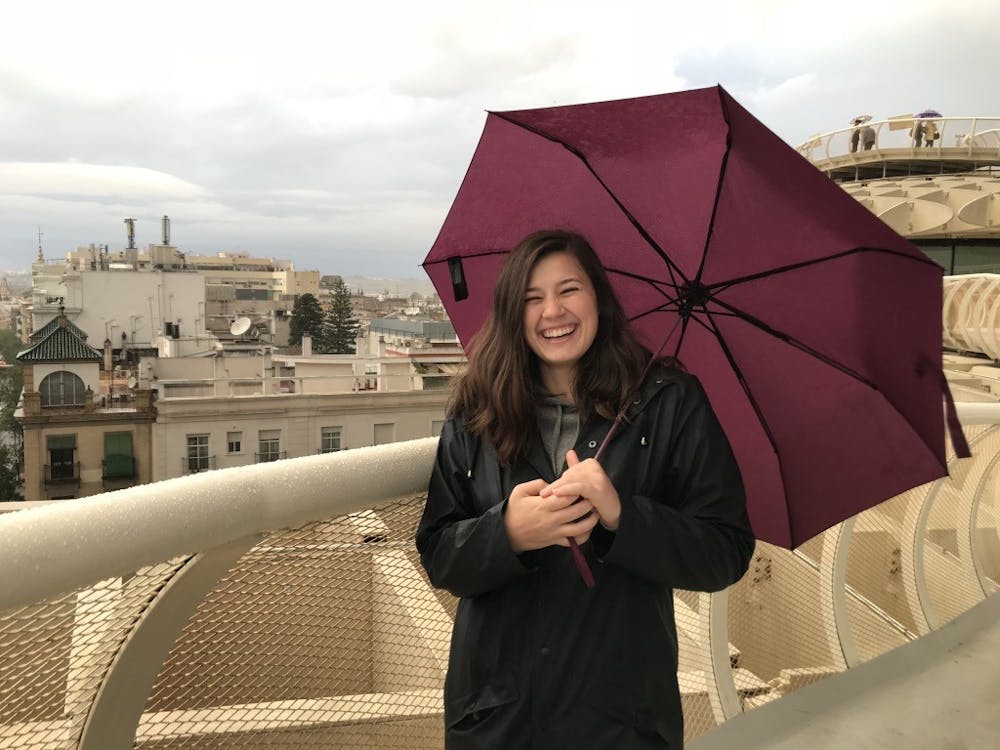
Junior Rebecca Cole says she had a hard time adjusting to the culture in Granada and lost part of her personality. Photo courtesy of Rebecca Cole.
“I felt like I lost some of my personality when I was speaking Spanish,” Cole said. “I couldn't be funny and I couldn't be witty, because I couldn't think fast enough to keep up with the conversation … In class, and even with my family, I just felt like I couldn't show who I really was when I was speaking Spanish … Maybe it sounds small, but it really made an impact on my experience learning Spanish.”
For some students, one of the biggest hurdles they face when considering whether to study abroad is the fear of losing friendships made at UP. Students who study abroad in the fall semester can potentially go eight months without seeing their UP friends in person because of the four-month summer break.
However, Bigelow found that when he got back to The Bluff after studying abroad, it was as if no time had passed. Bigelow also noted that the phone works both ways, meaning that the people who really care about you will try to stay connected with you.
Another part students worry about when applying to study abroad is safety. Junior Hannah Twomey had a string of bad luck where she had her passport stolen, Airbnb broken into and her phone pickpocketed.
Despite this bad luck, Twomey felt safe the vast majority of the time and loved her experience abroad. She and her roommate created a close bond with their host parents and three host siblings, which for Twomey, as an only child, was something she really valued.
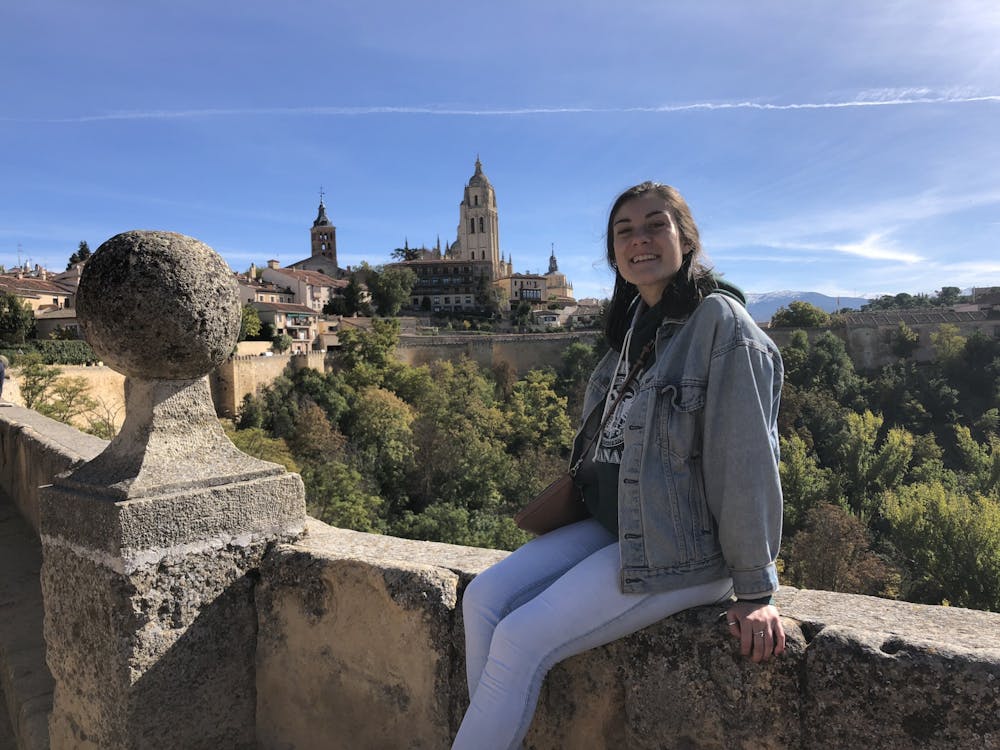
Junior Hannah Twomey had bad luck while abroad and had her passport stolen but says she still had a great experience. Photo courtesy of Hannah Twomey.
One of Sophomore Anna Sieber’s favorite parts about being abroad in Salzburg, Austria, last summer was how the professors would integrate what they would experience on group field trips into the classes they were taking.
“We went to the anatomy and pathology museum at the medical school in Vienna,” Sieber said “There (were) molds of all these lesions that had been hand-painted and … preserved organs and it was really, really cool to see as we were talking about some of the epidemics in the class and then see it in the museum.”
One part Sieber found off-putting about her experiences, however, was the difference in gender norms and the catcalling.
“The gender differences (were) definitely a little bit of an issue for me,” Sieber said. “In America, how men are able to treat women in social settings is a little bit different than it is there … Catcalling and taking women less seriously was something that we experienced and talked about in our gender class.”
Bigelow and the other students The Beacon spoke with said they recommend studying abroad to everyone. Even though some students say it can be difficult being away from home for so long, Bigelow said no one he knows regrets studying abroad.
“I’ve never talked to someone who has come back from the experience and said ‘you know, that was four months of my life I wish I had back,’” Bigelow said. “You learn something about yourself, you learn something about a new culture, it’s just a good way to get away from school for a couple of months.”
William Seekamp is a reporter for The Beacon. He can be reached at seekamp22@up.edu.



